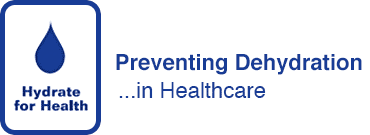How much water should we drink?
Water is essential for life and an individual’s health; a regular intake is necessary for maintaining the body’s fluid balance. However, it is difficult to define a recommended water intake for everyone, as a range of factors can affect an individual’s need, such as age and gender, but also levels of physical activity and climate.
The European Food Safety Authority’s (EFSA) panel on dietetic products, nutrition and allergies recommends daily intakes of two and 2.5 litres for women and men respectively.
However, it adds that these adequate intakes apply only to conditions of moderate environmental temperature and moderate physical activity levels. Water loss under extreme conditions (both due to temperature and physical exercise) can amount to eight litres a day and must be replaced with appropriate amounts.
UK-based authorities tend to take their lead from the EFSA, with the NHS recommending that women should drink eight 200ml glasses and men 10 glasses of fluid a day. The British Nutrition Foundation provides guidelines on the type of fluid to drink, concluding that individuals should drink “plenty” of water.
The Health and Safety Executive (HSE) recommends that, when working hard or at a high rate in heat or stress conditions, employees should consume around 250ml (half a pint) of water every 15 minutes.
However, the HSE recognises that this approach may not be practical due to the nature of the task, for example, having to wear protective equipment that restricts the ability to drink, or working in an industry where hygiene requirements prevent the consumption of food or drink. “In these circumstances, an alternative approach is drinking 500ml of water per hour before work commences and encouraging the drinking of 500ml of water during their rest periods”, HSE guidance suggests.
It is possible to drink too much water, leading to hyponatraemic, hypo-osmolar water intoxication (low levels of sodium in the blood) with cerebral oedema. But the EFSA concludes: “No maximum daily amount of water than can be tolerated by a population group can be defined, without taking into account individual and environmental factors.”
Sources: Scientific Opinion on Dietary Reference Values for water, EFSA Journal 2010; 8(3), p.1459.
